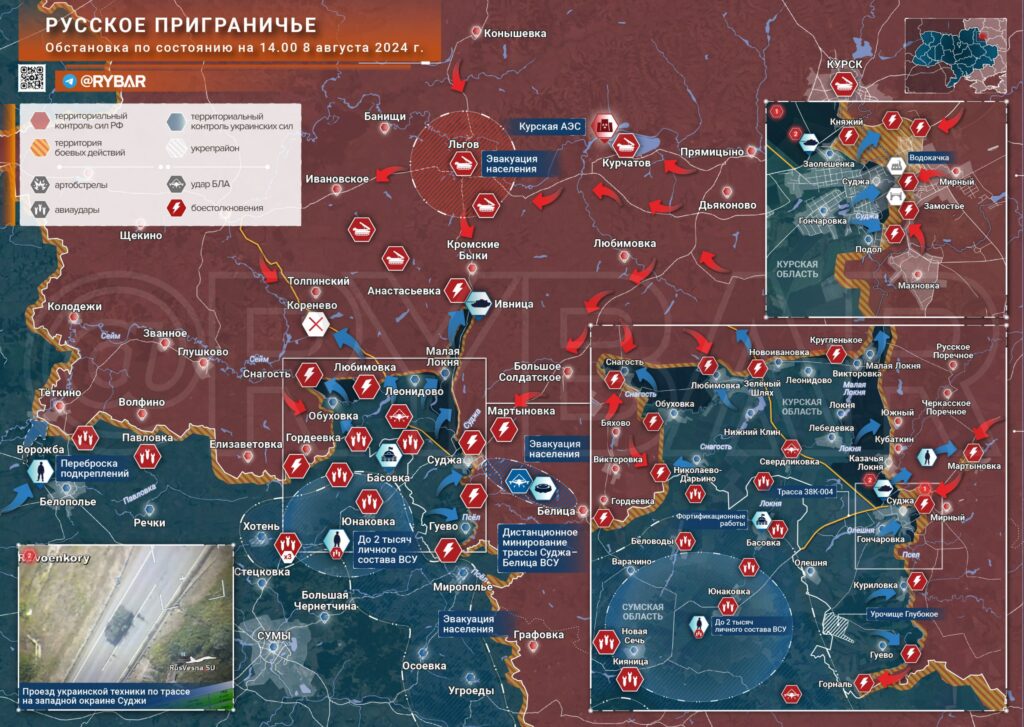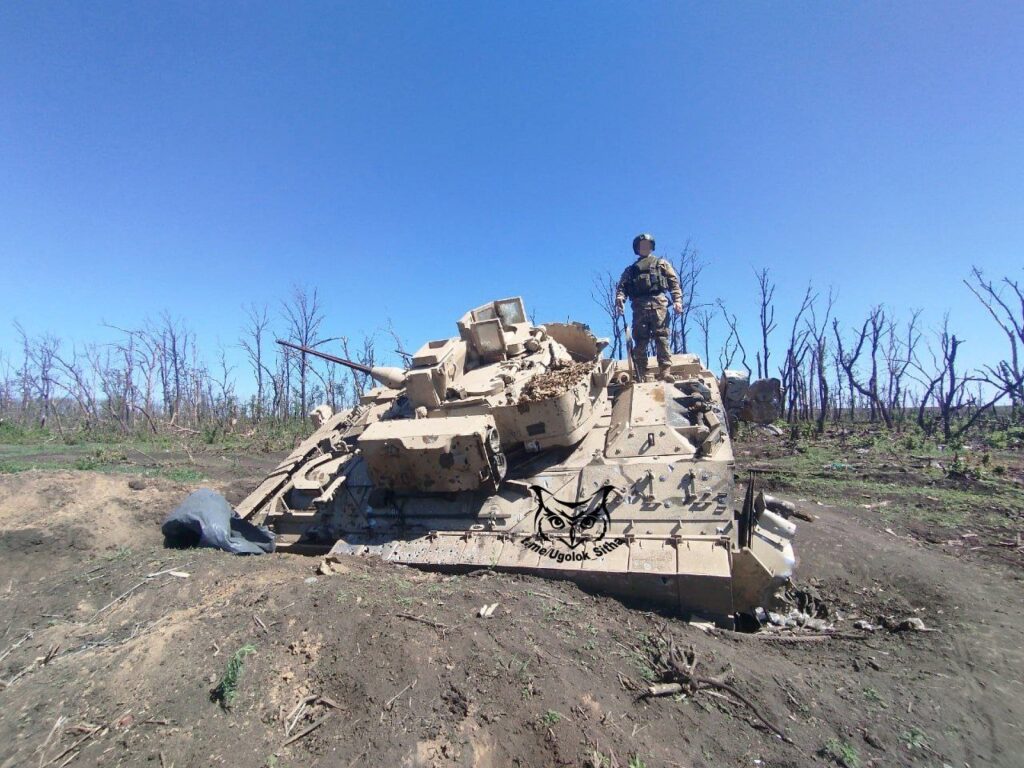Endorsing the invasion of undisputed Russian territory is a marked escalation
On Tuesday, August 6, Ukrainian forces crossed the border into Russia’s Kurskaya Oblast. Located northwest of the active fronts, the long border between northern Ukraine and Russia had been quiet, both sides content to avoid complicating the main battle in the east.
The rapid movement of the Ukrainian units resembled their saboteur-recon group actions in late 2022. Those had exploited thin Russian lines to quickly reach the rear, where they were difficult to counter despite their limited offensive potential. This time they similarly reached the town of Sudzha within a couple days, and drove fast along three different roads: northeast toward Kursk city, northward toward Lgov, and northwest toward Korenovo. The move toward Kursk was quickly shut down, but they remained active on the other roads and the territory they had already overrun.
Russian reinforcements arrived and contained them, as expected. Unlike northern Kharkovska and western Khersonskaya Oblasts, which they ceded in 2022, there’s no option but to defend. Significant reserves had to be sent to prevent Ukrainian reserves in Sumska Oblast from developing the breach, but the invasion was short lived, reminiscent of the 2023 raids toward Belgorod, on a slightly larger scale.

What did Washington and NATO know?
The first comment from the White House was that it had asked Kiev for “clarification” about what was going on. It added that its policy of allowing cross-border “strikes” with US weapons had not changed. This despite the Pentagon having long worked closely with Ukrainian forces, for example providing recon drones for strikes on Crimea. The claim of ignorance was soon followed by increasingly bold statements about the use of their weapons on Russian soil. German Bundestag Defense Committee chair Markus Faber said he didn’t see a problem with Ukraine using German tanks on Russian soil.
Ukrainian presidential advisor Mikhailo Podolyak soon confirmed to the Independent that there were non-public discussions between the “partners” to preserve the “element of surprise.” After the rhetorical creep of “strikes” becoming ground incursions by Leopards and Bradleys, there can be no doubt that Washington knew from the start what was happening. And Russian intelligence has gone further to claim that NATO organized and directly participated in the operation.

It’s already plain that the incursion has failed. Even if it’s not true that Washington was directly behind it, why are they and their NATO allies now tacitly endorsing it? It has had no conventional military benefit to Ukraine or NATO countries at all. It has only raised the stakes, increasing the level of provocation against a nuclear power. That makes no sense for a rational government to do.
But ours is not a rational government. Do we even have a government? Joe Biden has admitted he is too elderly to run for president. Is he not too elderly to be president now? Does Kamala Harris, who has no discernible policy on anything, run the country in his place? Or are we now witnessing the careerist blowhards of the national security state living their fantasy of unfettered control?
The world may have been closer to nuclear war in the past, but not for this reason. We cannot honestly say who is leading our country toward this abyss, if anyone at all. We’ve never been in this situation, and better figure out what to do about it quick.
